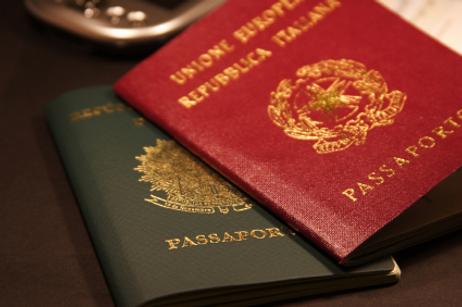This article is for the hundreds of foreign nationals who seek employment in American private schools each year. Be aware that most American private schools will hire a foreign national only if he or she has an H-1B Visa a J-1 Visa, or a Green Card (officially known as the Permanent Resident Card).
Let's review the types of visas available to a foreign national seeking to teach in the U.S.A.
H-1B Visas
The H-1B visa class is a viable option for primary, secondary or college teachers with the required knowledge and training, especially during times of national teacher shortages. H-1B visa offers foreign professionals the ability to work temporarily in the United States as long as they hold specialty occupations. For an H-1B visa for teachers, the exact requirements and eligibility conditions are noted below. Source: USCIS
H-1B visas are used for specialty employment situations, such as teaching and other skilled professionals. There are several ways you can navigate the labyrinth of requirements, forms, and fees required to submit your application. One way to do it is to apply yourself. This works only if you are an immigration lawyer because the rules, regulations, and application forms can be confusing for a foreign national.
H-1B visas are capped at 65,000 each fiscal year beginning on October 1. This class of visa is very competitive and uncertain. It also takes six to eight months for the entire process to play out. Only registered employers can apply for H-1B visas on behalf of prospective employees.
This video explains the H-1B visa process.
H-1b visa is one of the most popular work visas in the United States. It allows the visa holder to work in a specialized field of profession for a limited period of time. During the H1B employment, you are eligible to apply for legal permanent residence (employment green card) through your employer from within the United States. Thus, H-1B visa not only allows you to work legally in the U.S. but it also provides a path to U.S. citizenship. Source: Cipolla Law Group
J-1 Visas
The J-1 visa is called the “exchange visitor visa.” Rather than have a sponsoring employer, J-1 visa holders have sponsoring programs that are approved by the Department of State. This visa is intended for people from all over the world to gain skills in the U.S. to take back to their respective home countries. For this reason, each person that enters the U.S. under J-1 status is required to return home for at least two years before coming back to the U.S., a feature called the “home residency requirement”. Source: VisaNation
This video explains the J-1 visa process.
The Green Card
A foreign citizen seeking to live permanently in the United States requires an immigrant visa. This is sometimes called getting a green card. Source: Forbes
Most of the time, a school will not sponsor your application for a Green Card. It is too much of a gamble. The school goes through all the hassle and expense of securing a Green Card for you, only to have you decide a few years later that you want to work in another school. It's just not worth it.
A few private schools will go to the bother of securing a Permanent Resident Card for a key staff member such as a head of school. But those instances are few and far between. The situation is very much a 'catch-22' as the American Embassy in your home country will tell you that you need a job before applying for a work visa. On the other hand, the school will tell you that it needs you to have a green card before considering you for employment. That's why H-1b and J-1 visas are more attractive options.
This video offers some ways to get a Green Card.
The best advice I can offer is to hire an experienced professional immigration lawyer who will guide you through the lengthy, arcane process of applying for any American visa. Allow plenty of lead time. This cannot be a last-minute project.
Questions? Contact us on Facebook. @privateschoolreview






















